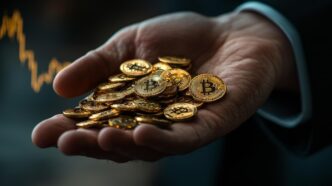Executive Summary
The Story So Far
Why This Matters
Who Thinks What?
Author and financial educator Robert Kiyosaki, known for his book *Rich Dad, Poor Dad*, has doubled down on his advocacy for accumulating what he terms “hard money” assets, specifically naming gold, silver, oil, Bitcoin, and Ethereum. Kiyosaki vehemently criticized central banks as “criminal organizations” and the traditional education system for allegedly indoctrinating young people to work for “fake money,” calling it a “criminal” act. He argues that such practices contribute to widening the gap between the rich and the poor.
Kiyosaki’s Investment Philosophy
Kiyosaki asserts that “poor people are poor because they have no idea what real money is,” attributing this lack of understanding to academic institutions. He believes that central banks, by printing money, inherently enrich the wealthy while diminishing the purchasing power of the less affluent. His personal investment strategy includes using proceeds from rental properties to acquire his preferred hard assets.
Kiyosaki also issued a warning against Exchange Traded Funds (ETFs), labeling them as “paper assets.” He has previously stated that he would accumulate more gold, silver, and Bitcoin if their prices were to significantly drop, indicating a long-term belief in their value.
Inflationary Concerns and Bitcoin’s Rise
The financial guru’s comments come amidst persistent inflationary pressures. The Federal Reserve’s inflation target of 2% has not been met since 2021, with August’s headline inflation reported at 2.9% and core inflation at 3.2%. Historical data suggests that $1,000 held from August 2000 to August 2025 could lose nearly 47% of its purchasing power due to inflation.
In contrast to declining fiat currency value, Bitcoin (BTC) has demonstrated significant growth, rallying more than 900% over the past five years. Kiyosaki himself revealed that he took time to understand Bitcoin but began purchasing it at $6,000. He now reportedly holds 60 BTC, valued at approximately $7 million, and has previously predicted Bitcoin could reach $1 million within the next decade.
Global Impact of Inflation and Crypto Adoption
The erosion of purchasing power due to inflation is a global phenomenon, leading individuals in nations with high inflation rates to increasingly turn to cryptocurrencies for financial protection. A notable example is Venezuela, which faces an annual inflation rate of 229% and has seen a rise in the use of stablecoins like Tether (USDT) as a hedge against economic instability.
Key Takeaways
Robert Kiyosaki’s strong advocacy for gold, silver, oil, Bitcoin, and Ethereum reflects a deep skepticism towards traditional monetary policies and institutions. His views underscore a growing sentiment among some investors seeking alternative assets to preserve wealth in an inflationary environment, highlighting the increasing relevance of cryptocurrencies as a perceived hedge against economic uncertainty.







